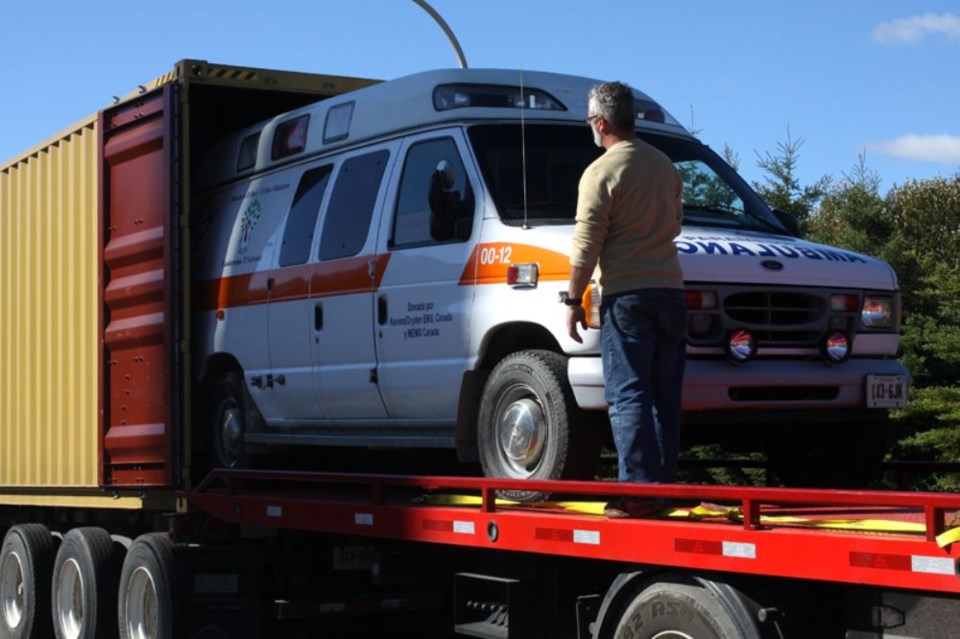THUNDER BAY -- An ambulance is going south to save lives.
The Medical Equipment Modernization Opportunity's 61st container is on its way to Tutultepeque, El Salvador, a rural and mountainous town about an hour-and-a-half from the capital San Salvador.
MEMO president Jerome Harvey said the ambulance, donated by the Kenora Services Board, is a welcome addition to the community, which until now transported anyone in need of emergency medical care by pick-up truck or motorcycle taxi.
Critical care paramedic Stephen Wiebe headed to the community for two weeks to train a social worker, a pastor and his brother, a taxi driver, on first response and how to use the fully-loaded ambulance.
A farming community, Wiebe said they were grateful for the medical training. So much in North America is taken for granted. Even latex gloves are washed and re-used in the town there.
"This will be a world of difference to them," he said.
Even in the capital city, ambulances are poorly equipped.
"Basically throw the person on a stretcher and drive as fast as you can is their method of operation down there," he said.
The ambulance will also have an infant incubator, donated by Thunder Air, giving the community even more ability to save lives.
"If a baby won't wait to get to hospital then baby will survive in that," Harvey said.
Wiebe, who's been working as a paramedic for more than 20 years, said he's happy to take his knowledge and share it with others.
"Those types of thing are just wonderful and I can't express in words how it makes me feel. As someone who loves to work in this field to see it expanding internationally in countries where these people had no hope otherwise," he said.
MEMO operates with no government or corporate funding. They take used medical equipment and ship it to developing countries with now 61 containers sent.
"That's a lot of stuff that hasn't gone to the scrap yard or the landfill," Harvey said.
Their next shipment, which usually costs around $10,000, will hopefully send a scope to a hospital in Liberia.
